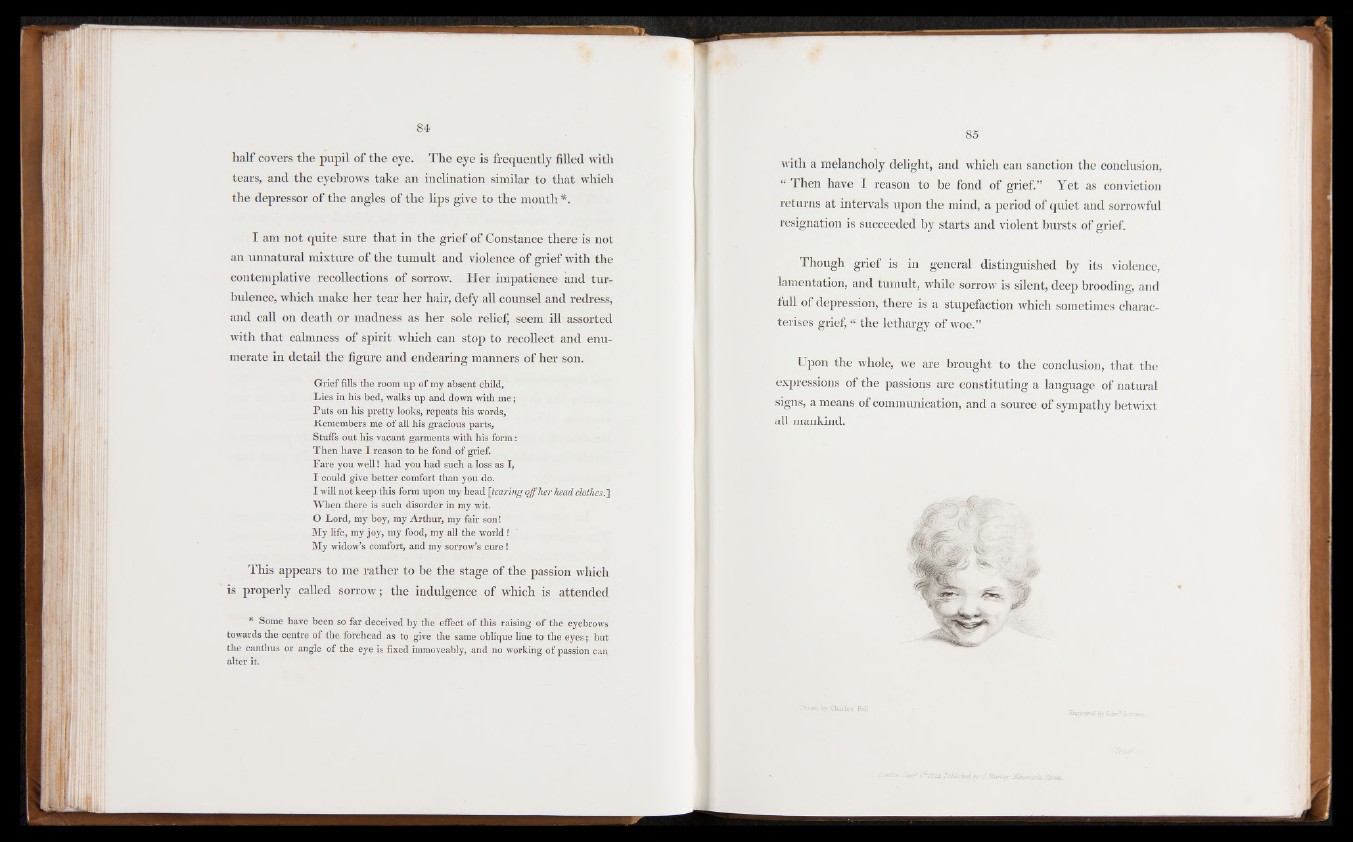
half covers the pupil of the eye. The eye is frequently filled with
tears, and the eyebrows take an inclination similar to that which
the depressor of the angles of the lips give to the mouth *.
I am not quite sure that in the grief of Constance there is not
an unnatural mixture of the tumult and violence of grief with the
contemplative recollections of sorrow. Her impatience and turbulence,
which make her tear her hair, defy all counsel and redress,
and call on death or madness as her sole relief, seem ill assorted
with that calmness of spirit which can stop to recollect and enumerate
in detail the figure and endearing manners of her son.
Grief fills the room up of my absent child,
Lies in his bed, walks up and down with me;
Puts on his pretty looks, repeats his words,
Remembers me of all his gracious parts,
Stuffs out his vacant garments with his form:
Then have I reason to be fond of grief.
Fare you well! had you had such a loss as I,
1' could give better comfort than you do.
I will not keep this form upon my head [tearing o ff her head clothes.']
When there is such disorder in my wit.
O Lord, my boy, my Arthur, my fair son!
My life, my joy, my food, my all the world!
My widow’s comfort, and my sorrow’s cure!
This appears to me rather to be the stage of the passion which
is properly called sorrow; the indulgence of which is attended
* Some have been so far deceived by the effect of this raising of the eyebrows
towards the centre of the forehead as to give the same oblique line to the eyes; but
the canthus or angle of the eye is iixed immoveably, and no working of passion can
alter it.
with a melancholy delight, and which can sanction the conclusion,
“ Then have I reason to be fond of grief.” Yet as conviction
returns at intervals upon the mind, a period of quiet and sorrowful
resignation is succeeded by starts and violent bursts of grief.
Though grief is in general distinguished by its violence,
lamentation, and tumult, while sorrow is silent, deep brooding, and
full of depression, there is a stupefaction which sometimes characterises
grief, “ the lethargy of woe.”
Upon the whole, we are brought to the conclusion, that the
expressions of the passions are constituting a language of natural
signs, a means of communication, and a source of sympathy betwixt
all mankind.